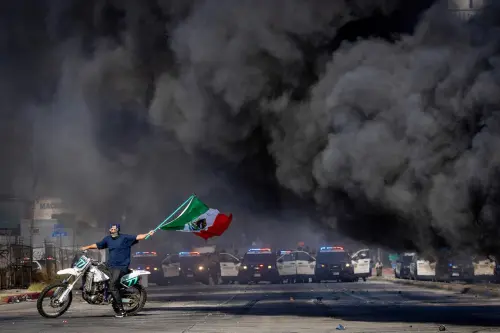Introduction
Tensions in Los Angeles escalated as President Trump’s administration announced the deployment of 2,000 National Guard troops amid ongoing protests against immigration raids. This move has drawn sharp criticism from local officials and sparked nationwide debate over immigration policies.Context
Protests erupted following enforcement actions by Immigration and Customs Enforcement (ICE), which resulted in the arrest of at least 44 individuals in the city. Many demonstrators, including those in the Paramount area of southeast Los Angeles, expressed their dissent by waving Mexican flags and chanting slogans against ICE, reflecting the city's significant Hispanic and foreign-born population. Following the actions, California Governor Gavin Newsom labeled the National Guard deployment as "purposefully inflammatory," arguing it was intended for spectacle rather than real law enforcement needs.Developments
Defense Secretary Pete Hegseth indicated that the Pentagon was poised to mobilize active-duty troops if violence persisted, with Marines at nearby Camp Pendleton reportedly on high alert. During the protests, federal agents faced off against demonstrators, leading to confrontations where multiple individuals were detained for failing to disperse after warnings.Trump's rhetoric on his Truth Social platform underscored a confrontational approach, suggesting that if local leaders failed to control the situation, the federal government would intervene decisively against what he termed "RIOTS & LOOTERS." Meanwhile, Vice President JD Vance characterized demonstrators as "insurrectionists," while Senior White House aide Stephen Miller described the protests as a "violent insurrection."
Despite rising tensions, U.S. officials indicated that the administration had not invoked the Insurrection Act, which would allow military forces to suppress civil disorder. The law, last used during the 1992 Los Angeles riots, grants the president authority to deploy troops for law enforcement.
Protesters articulated their resolve, with one stating that there exists a "fierce resistance" to any attempts to target workers unlawfully. Angelica Salas, head of the immigrant rights group Chirla, raised concerns about access to legal representation for those detained during the raids, which targeted locations including Home Depot stores and garment factories.
